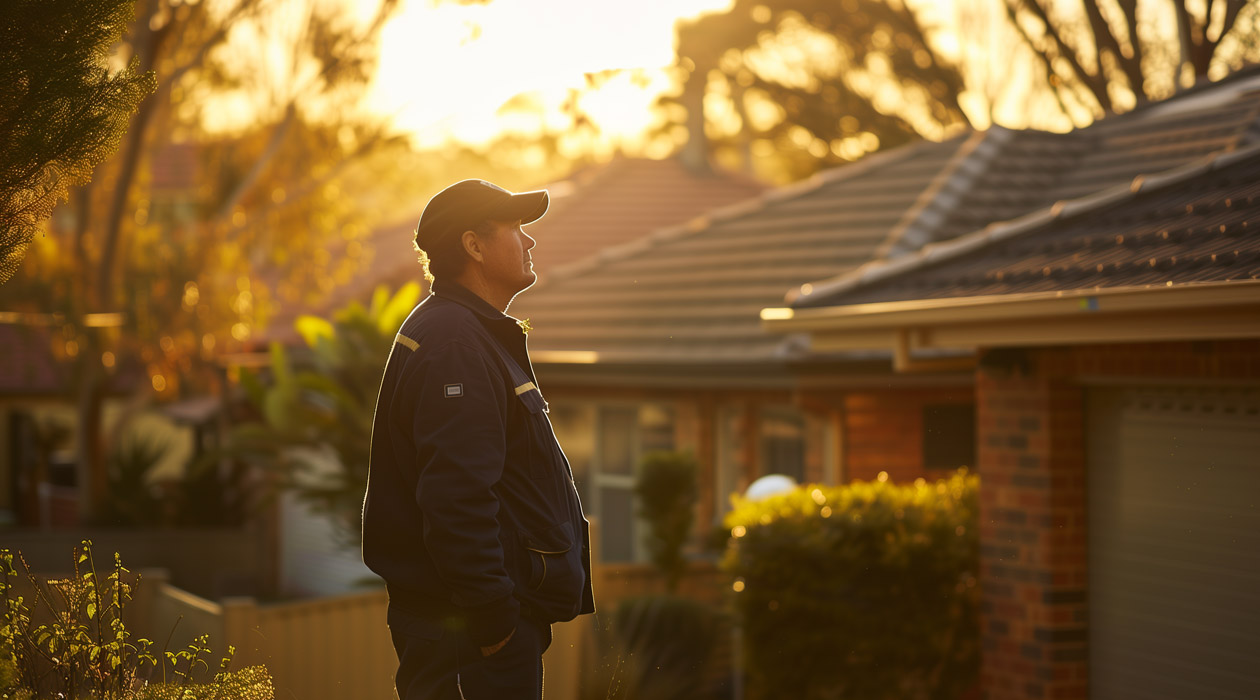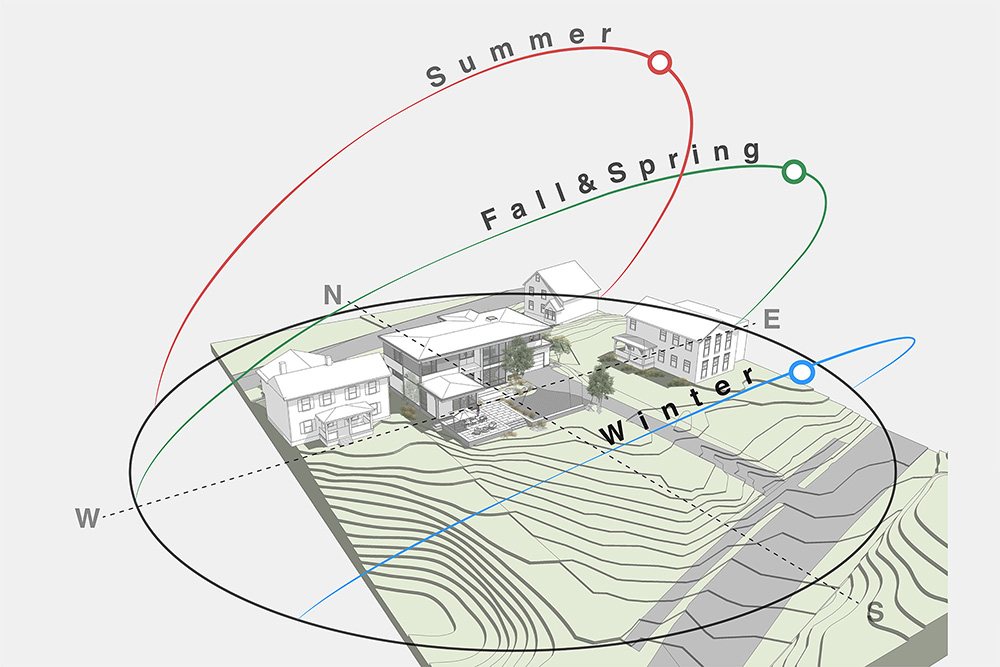Solar Site Assessment: Is My House Suitable for Solar Panels?

Unsure if your home gets enough sun for solar panels? This easy-to-read guide explains everything you need to know about solar site assessments, from roof suitability to energy needs. By evaluating factors such as roof condition, sun exposure, and energy needs, a site assessment determines the feasibility and effectiveness of solar energy for your home, paving the way for a brighter and more sustainable future.
What is a Solar Site Assessment?
A solar panel site assessment is a comprehensive evaluation of your property to determine its suitability for solar panel installation. It involves a detailed analysis of various factors that influence the effectiveness and efficiency of a solar energy system. Let’s explore the key areas a site assessment covers:
Determining Roof Suitability
The condition and structure of your roof play a critical role in supporting a solar panel system. Assessors carefully evaluate several aspects of your roof to ensure it can accommodate solar panels effectively.
- Roof Condition: Assessors evaluate the structural integrity and condition of your roof to ensure it can support the weight and wind load of solar panels.
- Roofing Material: Different roofing materials have varying lifespans and compatibility with solar installations. Assessors consider the type of roofing material and its remaining lifespan.
- Roof Size and Shape: The available roof space and its orientation determine the number of solar panels that can be installed and their optimal placement. Interesting Fact: An oblique shed roof design with a 25-degree tilt angle, 170-175 azimuth angle, and aspect ratio of 1:1.2 is optimal for maximising solar energy in Perth, Australia [2].
Understanding Sun Exposure and Angle
Maximising sun exposure is crucial for optimal solar energy production, and choosing the best direction your solar panels should face before installation is important. The site assessment analyses various factors that impact the amount of sunlight your panels will receive.
- Shading Analysis: Assessors identify potential shading from nearby trees, buildings, or other obstructions that could impact solar energy production.
- Sun Path and Angle: The sun’s path throughout the day and year affects the sunlight your panels receive. Assessors determine the optimal tilt and orientation of panels for maximum sun exposure. The optimum installation angle for solar-cell panels can improve their efficiency by optimising sunlight incident angle, with computer simulations showing close results to actual experimental results [1].

Image Credit: Flavin Architects
Luke Spicer, a Clean Energy Council Approved Installer from Skyline Solar provides the following expert tip “Throughout the day, observe how shadows fall on your roof from nearby trees, buildings, or other obstructions. Pay close attention to peak sunlight hours, typically between 10 am and 2 pm. This simple observation can provide valuable insights into potential shading issues that may impact solar panel efficiency.”
Energy Needs Assessment
Assessors evaluate your household’s energy consumption patterns to design a solar panel system that effectively meets your energy requirements.
- Energy Consumption: Assessors analyse your household’s energy usage patterns to determine the appropriate size and capacity of the solar panel system.
- Appliance Usage: Specific appliances and their energy requirements are considered to optimise system design for your needs.
Local Climate Considerations
Local weather conditions significantly impact the performance and efficiency of solar panels. The site assessment takes these factors into account.
- Weather Patterns: Assessors consider local weather patterns, including average sunshine hours, rainfall, and temperature fluctuations. Within Australia, the Bureau of Meteorology website is the most comprehensive and reliable source for Australian weather information.
- Wind Speed: Wind load is an essential factor in ensuring the structural integrity of the solar panel system.
Electrical System Evaluation
A crucial aspect of the site assessment involves evaluating your home’s electrical system to ensure it can safely and efficiently handle the integration of solar panels.
- Panel Capacity and Electrical Load: Assessors determine the capacity of your electrical panel and evaluate if it can accommodate the additional electrical load from the solar panel system.
- Wiring Condition: The condition and age of your electrical wiring are assessed to ensure they meet safety standards and can handle the current generated by the solar panels.
- Metering Requirements: Assessors determine if any upgrades or modifications are needed to your electrical meter to accommodate the two-way flow of electricity with a grid-connected solar system.
- Grounding and Safety: The assessment ensures your electrical system is properly grounded and meets all safety requirements for solar panel integration.
Site Assessment Process
A typical solar panel site assessment follows a structured process to gather all necessary information and provide you with a comprehensive report. While specific steps may vary between providers, here’s a general overview of what you can expect:
- Initial Consultation: The process begins with discussing your interest in solar energy, energy needs, and property details. This may involve an online questionnaire or a phone call with the provider.
- Site Visit: A qualified assessor will thoroughly evaluate your property. They will inspect your roof, assess shading, and take measurements. They may also inquire about your electrical system and energy consumption habits.
- Data Analysis: The assessor will utilise various tools and software to analyse the collected data. This often involves satellite imagery, 3D modelling, and shade analysis tools. Interesting Fact: If you live in the USA, you can use Google’s Project Sunroof, to provide estimates of solar irradiance and potential energy production based on your location and roof characteristics.
- System Design and Proposal: Based on the assessment findings, the provider will design a customised solar panel system tailored to your property and energy needs. They will then present a proposal outlining the system specifications, estimated costs, and potential energy savings.
- Report and Recommendations: You will receive a detailed report summarising the site assessment findings, system design, and recommendations. This report will provide valuable insights into the feasibility and potential benefits of installing solar panels on your property.
Australian Considerations
- Clean Energy Council (CEC) Accreditation: Ensure your chosen provider and assessor hold the necessary accreditations from the Clean Energy Council, the peak body for the clean energy industry in Australia.
- State and Council Regulations: Be aware of specific regulations or requirements for solar panel installations in your state or local area.
- Government Incentives: Research available government rebates, incentives, and feed-in tariffs that can significantly reduce the cost of your solar panel system. According to the Queensland Solar Farm Guidelines from the Queensland Government, “Solar farms are a long-term investment in Queensland’s future energy security.” – so there is good probability that more Government incentives will be made available into the future.
The site assessment process equips you with the knowledge and information needed to make informed decisions about investing in solar energy for your home.
Benefits of a Site Assessment
Investing in a solar panel site assessment offers numerous advantages that can save you time and money and ensure the success of your solar energy project. Here are some key benefits:
- Determine Solar Feasibility: The assessment clarifies whether your property is suitable for solar panels and helps you avoid investing in a system that may not meet your needs or expectations.
- Optimise System Design: The assessment analyses factors like roof size, shading, and sun exposure to ensure that your solar panel system is designed for maximum efficiency and energy production.
- Accurate Cost Estimates: The assessment provides realistic cost estimates for the installation, allowing you to budget effectively and compare quotes from different providers.
- Potential Energy Savings: By understanding your energy needs and the system’s potential output, you can accurately estimate the long-term energy savings you can achieve with solar panels.
- Informed Decision-Making: The comprehensive information in the assessment report empowers you to make confident and informed decisions about your solar investment.
- Maximise Return on Investment: A well-designed solar panel system based on a thorough site assessment ensures maximum return on investment through optimal energy production and reduced electricity bills.
A site assessment is an invaluable tool for anyone considering solar panels. It provides the necessary insights and data to ensure a successful and rewarding transition to clean energy.
Finding a Site Assessment Provider
Choosing the right site assessment provider is crucial for ensuring the accuracy and reliability of your solar evaluation. While several providers offer this service, Skyline Solar stands out as a leader in the industry, offering expertise, professionalism, and a commitment to customer satisfaction.
Why Choose Skyline Solar?
- Experienced and Qualified Assessors: Skyline Solar’s team consists of highly trained and certified assessors with extensive knowledge of solar technology and local regulations.
- Advanced Assessment Tools: We utilise cutting-edge software and technology, including satellite imagery and 3D modelling, to provide precise and detailed assessments.
- Customised Solutions: We understand that every home is unique. We design personalised solar panel systems tailored to your energy needs and property characteristics.
- Transparent and Competitive Pricing: Skyline Solar offers competitive pricing for site assessments and transparent quotes for solar panel installations.
- Exceptional Customer Service: We prioritise customer satisfaction and communicate clearly throughout the assessment and installation process.
Taking the Next Step
Contact Skyline Solar today to schedule your comprehensive solar panel site assessment. Our team is ready to guide you through the process and help you make informed decisions about embracing solar energy for your home.
Additional Tips
- Check for Industry Accreditations: Ensure the provider and assessor hold relevant certifications and licenses.
- Read Reviews and Testimonials: Research the provider’s reputation and customer feedback.
- Ask About Experience: Inquire about the provider’s experience in the solar industry and their familiarity with local regulations.
[1] Chen, Y., Lee, C., & Wu, H. (2005). Calculation of the optimum installation angle for fixed solar-cell panels based on the genetic algorithm and the Simulated-annealing method. IEEE Transactions on Energy Conversion, 20, 467-473. https://doi.org/10.1109/TEC.2004.832093.
[2] Esfahani, S., Karrech, A., Cameron, R., Elchalakani, M., Tenorio, R., & Jerez, F. (2020). Optimizing the solar energy capture of residential roof design in the southern hemisphere through Evolutionary Algorithm. . https://doi.org/10.1016/J.ENBENV.2020.09.004.

